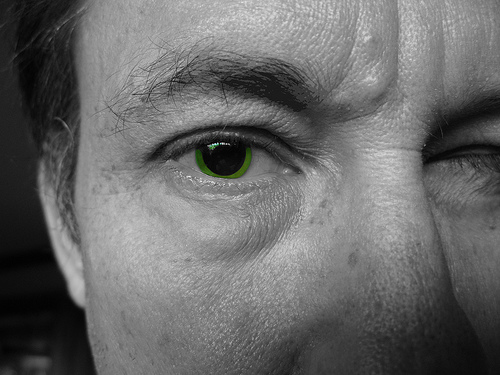This minor exam can provide serious insight into many eye diseases.
There are many different tests and questions that go into a comprehensive eye examination: Visual acuity tests, color blindness tests, pupil dilation exams, cover tests, retinoscopy, refraction, and more. While all of these tests can provide valuable insight into the health and strength of your eyes, it may be confusing why each of these different tests are necessary and what exactly they uncover about your vision.
One test that many people often dread when visiting their ophthalmologist and wonder if they could simply do without is the pupil dilation exam.
Pupil dilation exams can often feel more inconvenient than anything. These drops that are put into your eyes make it difficult to focus on objects, they can interfere with your ability to drive or work in the hours after your examination, and they even make your eyes extremely sensitive to light. All of this discomfort just for what? A minor eye test?
While pupil dilation exams may seem as though they are just one of many minor tests that you undergo during a comprehensive eye examination, this specific exam actually provides a lot larger of an insight into your eye health than you may realize.
During the exam, your eye doctor will use special eye drops that will cause your pupils to become very dilated, or essentially grow larger. When the pupil (the black portion at the center of your eye) widens, your doctor can get a better view at the back of your eye, which allows them to better diagnose different eye diseases and conditions.
In fact, there are seven different serious diseases and conditions that can be detected at their earliest stages during a simple pupil dilation exam. Here are the seven conditions that an ophthalmologist looks for during this specific test:
- Cataracts – The clouding of the eye’s lens which can make it difficult to see. Often common in people over the age of 60.
- High Blood Pressure – Any damage that is caused to the eye’s blood vessels from hypertension or high blood pressure could possible indicate a higher risk of stroke for some people, especially women.
- Diabetes – Many people who have diabetes are often also at risk for certain eye diseases that cause vision loss or blindness. Uncovering these vision problems early on has led to many people also discovering that they are diabetic.
- Detached Retina – When the retina separates from the back wall of the eye, it can be very serious and potentially damaging. Luckily, if caught early, it can be repaired immediately and you can avoid vision loss.
- Tumors – Some brain tumors can cause specific changes to our eyes or can even lead to vision problems uncovered by pupil dilation exams.
- Infection or Inflammation – Several infectious diseases and retinal vasculitis (an inflammation of the retina’s blood vessels) can all threaten our eyesight.
- Macular Degeneration – One of the most common causes of blindness in older individuals, macular degeneration can be seen when looking at the retina. If caught early enough, it is even possible to slow its progress.
As you can see, while pupil dilation examinations may seem like an inconvenience, they actually provide very valuable insight into the health of our eyes. Therefore, be sure that you are undergoing this particular exam during your next vision check-up to be sure that your eyes are in tip-top shape!
